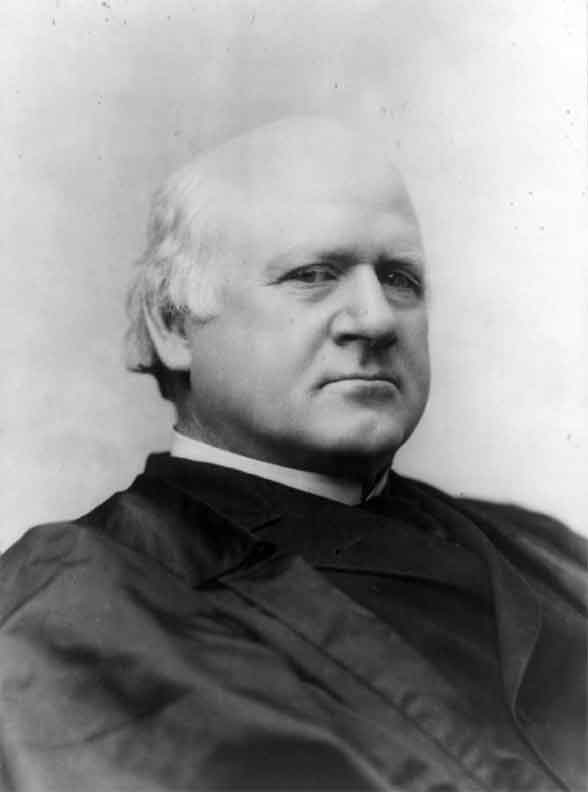John Harlan

John Marshall Harlan was born in Boyle County, Kentucky, on June 1, 1833. He studied at Centre College in Danville, Kentucky, then attended law school at Transylvania University in 1851. Harlan passed the bar in Frankfort, Kentucky. A member of the Whig Party, he was elected city attorney of Frankfort, then county judge, serving in the latter capacity for one year. In 1856, he married Malvina F. Shanklin, with whom he later had six children.
Although he was a slaveowner and a member of the southern "aristocracy," he chose to lead Kentucky’s pro-Union majority when the Civil War began. Harlan served as a colonel of the Tenth Kentucky Volunteer Infantry and acting brigade commander in several Union campaigns. In 1863, upon the death of his father, Harlan resigned from the Union army and returned to his law practice. He was soon elected state attorney general. Despite his support of the Union, he opposed the Emancipation Proclamation, as well as President Abraham Lincoln’s attempt to win reelection in 1864. He also opposed the Reconstruction Amendments to the Constitution, maintaining ownership of some of his slaves until the ratification of the Thirteenth Amendment.
In 1867, he joined the Republican Party, possibly under the influence of his northern wife, Malvina Shanklin, who had been raised believing in the immorality of slavery. He embraced the Radical Republican policies he had previously spurned. Although he was unable to win any further elected positions, he became an important force in state and national Republican politics. President Rutherford B. Hayes appointed Harlan to the US Supreme Court in 1877, and he took his oath of office on December 10. He served on the Court for almost 34 years, during which the Court evolved from a forum for private law cases to a public law court. Harlan held strongly to his views of constitutional interpretation, and was not afraid to stand in dissent against the majority. He dissented in cases in which the Court interpreted the Commerce Clause of the Constitution narrowly enough to protect business from federal and state government regulation. In addition, he sided with Due Process Clause protection of individuals against the Court majority, which voted in support of state criminal law procedures.
Most notably, Harlan dissented in cases of racial discrimination. Having accepted the Fourteenth Amendment at its ratification, he embraced it to the extent that he held strongly that "equal protection" meant that African-Americans were fully protected in all government dealings, whether federal or state. In the Civil Rights Cases (1883), he held that the Fourteenth Amendment applied indirectly to private actions unregulated by the state. Thus, he argued, private companies such as railroads and hotels had no legal rights to discriminate against African-Americans. The Court rejected Harlan’s argument, and such discrimination was not banned by the Court for another 70 years. Harlan is perhaps best remembered for his prophetic dissent in the historic case, Plessy v. Ferguson (1896), in which the Court majority upheld a Louisiana law requiring separate cars for Whites and Blacks on trains. Harlan was the only justice to dissent from the decision, based on his belief that "the Constitution is colorblind."
Harlan died suddenly on October 14, 1911, apparently of pneumonia, only a few days after attending the opening session of the Court’s 1911 term. Harlan’s grandson, John Marshall Harlan II, became a Supreme Court Justice in 1955.
 >
>